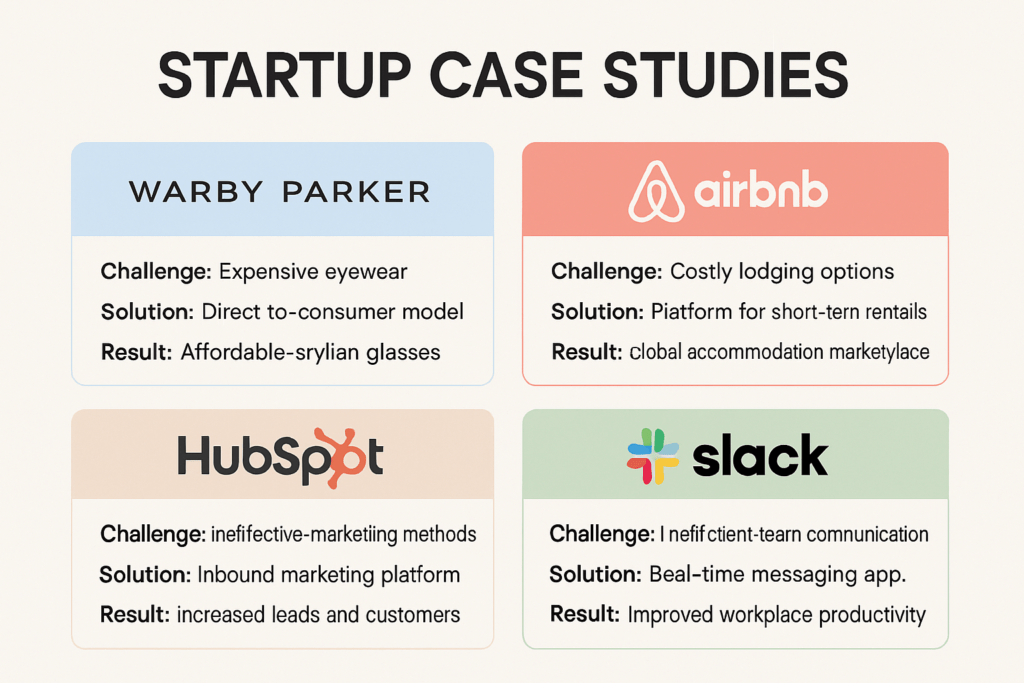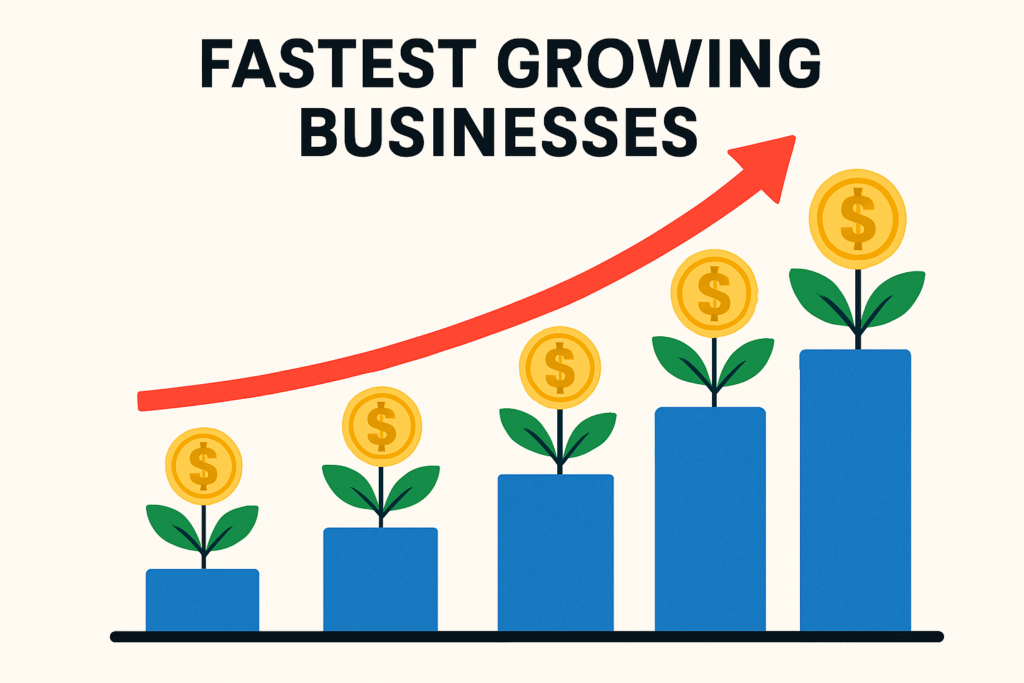Innovative Companies: How They Changed the Game
- Set the stage: Modern markets move fast. Some companies don’t just keep up—they completely rewrite the playbook.
- Drop the primary keyword front and center: innovative companies.
- Mention the article will cover true industry disruptors with real-world impact, not just splashy gimmicks.
- Note: This is an award-winning article for a reason—expect sharp, to-the-point stories.
Innovative Companies: How They Changed the Game
Modern markets move at breakneck speed. One minute, everyone’s playing by the same rules—the next, someone flips the board. That’s where innovative companies come in. They don’t just keep up with change; they drive it, setting the new standard while everyone else scrambles to catch up. We’re not talking about empty buzzwords or the latest app fad. In this article, you’ll get the real stories behind the world’s true industry disruptors—the companies laying down actual impact, not just marketing smoke and mirrors. You want substance, not style? You’re in the right place. The profiles ahead cut through the noise and focus on the playbook-altering, market-moving moves that make these companies genuinely award-worthy.
The way lottery winners manage their newfound riches is pivotal, determining not just their own futures but also the legacies they leave behind. Balancing excitement with responsibility, and luxury with contribution, shapes both their personal odysseys and their broader societal impacts.
Classic Game-Changing Companies That Started It All
Before “disruptor” was a buzzword, a handful of bold players cracked the code. Game-changing companies like Apple, Netflix, and Tesla didn’t just launch products—they flipped whole industries on their heads.
Take Apple. When the original iPhone dropped in 2007, it wasn’t just a slick phone—it was a clean break from everything before. They ditched buttons, reimagined the interface, and built an entire ecosystem around it. Suddenly, mobile phones weren’t just for calling—they were music players, cameras, and mini-computers. It’s tough to overstate how much this changed user expectations everywhere.
Netflix also deserves its place in the pantheon of innovative market leaders. What started as mail-order DVDs morphed into the world’s default streaming service, crushing the old models of scheduled TV and physical media. The magic wasn’t just the tech—it was their willingness to blow up their own business before someone else did. Now, “Netflix and chill” is as much part of pop culture as TV ever was.
And then there’s Tesla. Electric vehicles existed before Elon Musk, but let’s be real—nobody wearing a hoodie wanted to drive one. Then Tesla made EVs cool, aspirational, and fast. They overhauled not just car tech, but the concept of car ownership, charging, and even how cars got updates (hello, over-the-air fixes). The ripple effects are still pounding through boardrooms in Detroit, Tokyo, and beyond.
These aren’t just stories—they’re battle plans for transformation. What’s truly “game-changing” is the guts to start fresh, break entrenched habits, and force an entire market to chase you instead of the other way around.
Fresh Faces: Today’s Industry Disruptors
Want proof that upstarts can punch above their weight? Look at companies like Figma. While the rest of the design world was chained to clunky, desktop-only apps, Figma’s pure-browser interface let teams collaborate in real time—no downloads, no handoffs, just a frictionless creative flow. Their secret weapon? A bet on browser tech before it was cool.
Or check out Anduril. Defense industry? Not exactly nimble. But Anduril’s plug-and-play drones and AI-powered surveillance systems have military buyers rethinking what “fast” means. Whereas the old guard took years to ship, Anduril iterates in months—sometimes weeks—thanks to their Silicon Valley roots.
Then there’s Lemonade, the insurance startup that weaponized algorithms and a chatbot named “AI Maya.” Their model flips the incentive script: unused premiums go to charity, not to line executive pockets. That tiny tweak? It builds trust, and it’s quietly eating market share from century-old giants.
All three bucked tradition—not just with tech but with how they think about customers, markets, and what’s possible. “Disruption” gets tossed around a lot. With these players, it’s not hype. It’s just what happens when someone rewrites the rules and means it.
What Happens After Winning Millions?
Winning a life-changing lottery jackpot is every player’s dream, but the aftermath can be overwhelming. The sudden influx of wealth brings excitement along with significant challenges. Without proper planning, the dream of endless riches can quickly turn into a financial nightmare.
The Financial Reality of Winning
Upon winning, many face immediate financial decisions:
- Taxes and Legal Issues: A large portion of the winnings goes to taxes, and poor planning can lead to legal troubles.
- Investing vs. Spending: Hiring financial advisors can help ensure security, but some winners spend recklessly.
- Budgeting for the Future: Without careful money management, even the biggest jackpots can disappear.
A Lifestyle Overhaul
The impact of newfound wealth goes beyond finances:
- Luxury Purchases: Mansions, sports cars, and extravagant vacations become affordable.
- Social Pressure: Friends and distant relatives might reappear, expecting a share.
- Privacy Challenges: Winners may struggle with unwanted attention and scrutiny.
While some embrace their wealth openly, others choose to live discreetly to manage pressure and expectations.
Giving Back and Creating a Legacy
Some winners use their fortunes to make a positive impact:
- Charitable Donations: Funding scholarships and launching nonprofits helps support education and social causes.
- Community Projects: Investing in initiatives that benefit their locality leaves a lasting legacy.
- Business Investments: Supporting ventures that generate employment opportunities.
The way winners handle their newfound riches determines not just their future, but also the legacy they leave behind. Wealth can transition winners from players to philanthropists, showcasing that it can be used for greater good. Yet, not all stories end well; those who can’t manage their winnings might face financial downfall.
Risks, Failures, and Comebacks
Here’s the thing about innovative companies: they eat risk for breakfast, and failure is always on the menu. Those sweeping success stories? Underneath, you’ll find plenty of ideas that flopped, launches that bombed, and bets that looked brilliant—until they didn’t.
Look at Netflix. Before it dominated streaming, it tried a “Qwikster” spinoff in 2011—separating DVD rentals from streaming. Customers hated it. Netflix scrapped the plan in under a month, swallowed a PR nightmare, and moved on. Lesson learned, zero hesitation.
Dyson burned through more than 5,000 prototypes before the first vacuum actually worked. Most teams would’ve bailed by prototype #50.
In the innovation game, it’s not about never missing the mark. The best bounce back faster, admit the mess, and iterate smarter. As cliché as it sounds, failure isn’t the end—it’s just another data point. The truly innovative crowd? They treat every wipeout as gas in the tank for their next big move.
What Happens After Winning Millions?
Winning a life-changing lottery jackpot is every player’s dream, but few are prepared for the aftermath. The sudden influx of wealth can bring excitement, but also a wave of challenges. Here’s how winners often handle the new reality.
Managing the Financial Windfall
- Taxes and Legal Issues
- A large percentage of winnings often goes to taxes, and without proper planning, winners can face significant legal challenges.
- Investing vs. Spending
- Some winners hire financial advisors for long-term planning, while others may spend recklessly.
- Budgeting for the Future
- Proper money management is critical to prevent the fortune from disappearing quickly.
Adjusting to a New Lifestyle
The lifestyle changes are immediate and significant for most winners:
- Luxury Purchases
- The ability to purchase mansions, sports cars, and extravagant vacations becomes a reality.
- Social Pressure
- Friends and distant relatives often reemerge, creating tension and challenging the choice to share wealth.
- Privacy Challenges
- With newfound wealth comes unwanted media attention and public scrutiny.
Some winners adapt by embracing their wealth openly, while others choose discretion to avoid attention.
Creating a Lasting Impact
Many winners view their fortune as an opportunity to effect positive change:
- Charitable Causes
- Donating to charities, supporting community projects, and funding scholarships.
- Business Investments
- Some invest in businesses that generate jobs and support communities.
These actions allow winners to transition from players to philanthropists, influencing legacies beyond personal fortunes. Not all stories end well, though, as many face financial downfall due to poor planning.
Winning millions provides incredible opportunities, but handling it wisely is crucial for a sustainable and impactful future.
Want More Disruptor Inspiration?
The companies changing the game today won’t be the last. Keep your radar up—fresh disruptors are rewriting industries every year, not just the giants everyone knows. If you want to stay sharp and inspired by what’s next, check out Forbes’ industry disruptors for real-time updates on the movers, shakers, and risk-takers who are shaping tomorrow. The field never stands still, so neither should you.
Wrap Up: Lessons from the Top Game-Changers
Studying innovative companies isn’t just for nerds or CEOs—it’s for anyone who wants to make real impact, whether you’re launching a startup or just hacking your nine-to-five. The best disruptors don’t chase trends; they set them. They combine sharp vision, the guts to leap, and the discipline to keep going when it gets rough. They’re not allergic to risk. They get knocked down, then break what failed and build it better.
Here’s the core lesson: Innovation isn’t a lightning strike. It’s constant movement, experiment, and the will to learn—on repeat. Every game-changer, big or scrappy, plays with that mindset. So if you want to shake up your own industry or simply stand out, take your cue from the pros: Stay curious. Get uncomfortable. Step up and create something that actually changes the game.

 Charles Betzonics brings a sharp analytical approach to his writing at bizmomentumx. With a strong background in IT and emerging technologies, Charles focuses on cybersecurity, cloud computing, and digital transformation strategies, making complex topics accessible to a wide audience.
Charles Betzonics brings a sharp analytical approach to his writing at bizmomentumx. With a strong background in IT and emerging technologies, Charles focuses on cybersecurity, cloud computing, and digital transformation strategies, making complex topics accessible to a wide audience.
